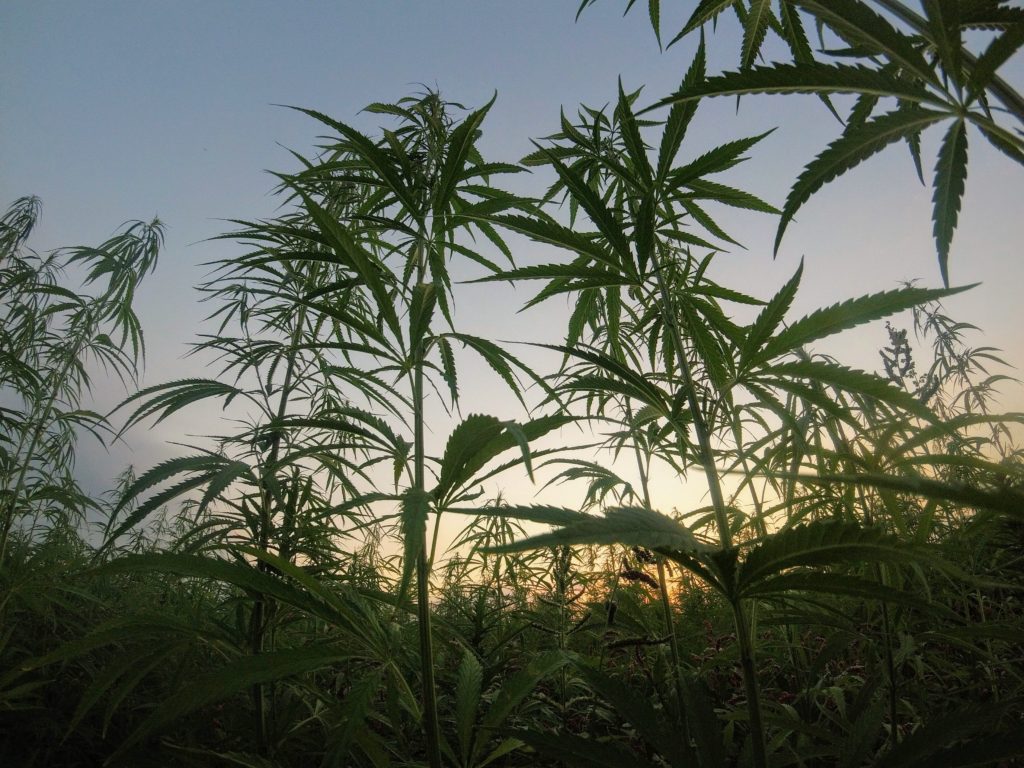How did hemp and “marijuana” become illegal in the first place?
Maybe you’ve asked yourself the same question, like I did when I was researching to write this article for Christianity Today.
Here’s what I’ve discovered so far.
On January 1, 2019, an 82-year prohibition came to a quiet end. The 2018 Farm Bill, which President Trump signed in December, reversed a 1937 federal prohibition of the hemp plant, effectively removing it from the list of Schedule I Controlled Substances, and separating it from its cousin marijuana.
Freeing hemp from its federal ban— a push led by Kentucky Sen. Mitch McConnell to help farmers—has paved the way for a new cash crop that was once available to many U.S. farmers, including George Washington and Thomas Jefferson.
In fact, during the 17th and 18th centuries, hemp was such a valuable industrial resource to England and the American colonies, that colonists could be penalized, even jailed, for not growing hemp.
So how did this multi-purpose plant go from being illegal not to grow, to being classified as a Schedule I, sitting alongside abused drugs like heroin, LSD and ecstasy?
The answer is found in a complex web of political and racist rhetoric.
Before the 21st amendment repealed the prohibition of alcohol in 1933, Prohibition agent Harry Anslinger, who became the first commissioner of the Federal Bureau of Narcotics, set his sights on a new substance to prohibit in order to expand the department.
He found it in cannabis.
Going against the majority of experts of his day, Anslinger’s PR machine created a campaign to rebrand cannabis as a dangerous drug responsible for societal evils, and associating it primarily with Blacks, Latinos and immigrants.
To aid this racist political agenda, Anslinger strategically adopted the term “marihuana,” a Spanish term for the plant.
(By the Civil War, cotton’s popularity had outpaced hemp cultivation and the latter phased out.)
The pro-racist anti-cannabis propaganda (which included the 1936 film Reefer Madness) combined with other political and economic factors resulted in The Marihuana Tax Act of 1937, which outlawed cannabis (marijuana and hemp), and soon would spark the infamously ineffective “War on Drugs.”
2019 and Beyond: The Future of Hemp, CBD and Cannabis
Though federal law allows for hemp cultivation, it is at odds with some state laws. (Case in point: The great-grandmother arrested at Disney World for “possession” of CBD in her purse to use for arthritis.)
That is the opposite for hemp’s cousin cannabis (marijuana), however, which is still currently a Schedule I drug and illegal under federal law, though it is legal for medical and/or recreational use in 33 states.
Some U.S. states, however, are still grappling with the legal learning curve around CBD oil, too.
Gray areas remain, with question marks over regulation and educating law enforcement—further complicated by rapidly evolving conversations about the federal status of marijuana, which is still illegal in more than a dozen states.
South Dakota, for instance, has spent the first half of 2019 playing political ping pong over hemp farming and hemp-based CBD oil. While the state’s governor and attorney general maintained that hemp and CBD oil was illegal, much to the disappointment of many crop farmers, Pennington County State’s attorney Mark Vargo said he would not prosecute anyone selling or using CBD, since CBD oil is not marijuana and therefore not illegal under state law.
Amidst the legal and political arm wrestling, the CBD oil market continues to grow, and is estimated to reach $2 billion by 2020, and $16 billion by 2025.
Many lifestyle brands seem to be coming on board as well. Young Living Essential Oils announced to distributors they plan to release an organic hemp CBD-infused essential oil sometime in 2019. Dr. Josh Axe and Dr. Jordan Rubin’s Ancient Nutrition brand has released a new line of hemp CBD products as well.
If it weren’t for its 82-year ban, and if hemp was a cousin to corn or cotton, instead of marijuana, it likely wouldn’t even raise a question today.
How does this land with you? Does hearing more about the “backstory” of cannabis and hemp change your opinion on either of these plants? Let me know in the comments below.
Photo by Matteo Paganelli on Unsplash


Join the Conversation